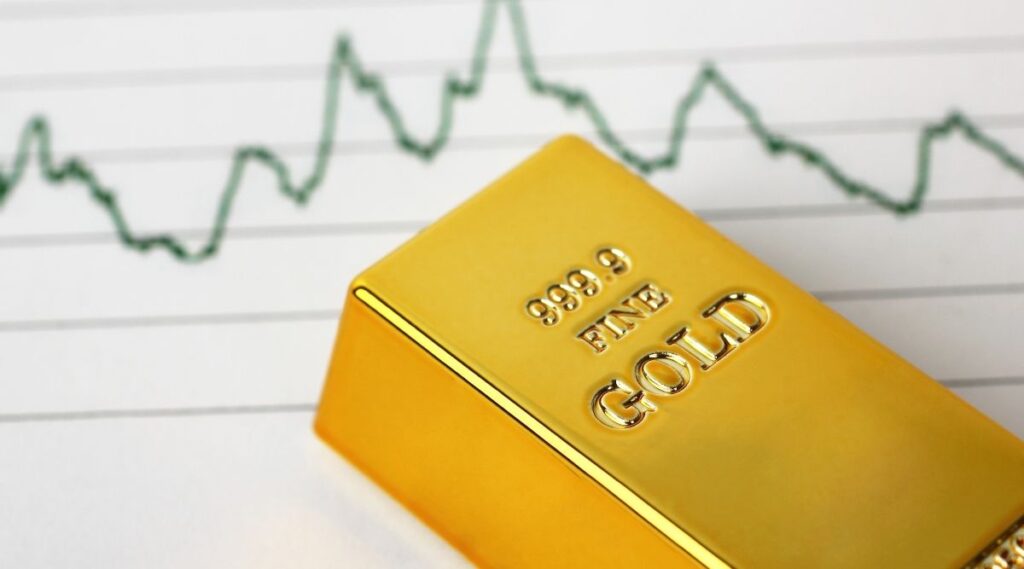Gold has been around for over 5000 years, with societies and economies placing value on it and recognizing its appeal.
However, if you’ve ever given two thoughts about the currency of gold, you might be curious to know: Does gold always have value?
In this article, I will cover some key information about the value of gold, including a brief history of gold and whether gold will always have value.
Let’s get started.

Table of Contents
A Brief History Of Gold
From the Egyptians to the Inca, the allure of gold across history is undeniable. Gold has long been recognized for its actual and symbolic value, and the human fascination with this metal is still very much alive.
Thousands of years ago, humans used to barter for their goods.
However, over time, they were faced with creating a method of exchange that was easier to use than a barter system, and as a result, the coin came into existence.
Back in the day, coins were made out of a variety of different metals, including gold, silver, electrum, copper, brass, and bronze.
When it comes to coins, it’s easy to see why gold eventually became the ideal choice. Gold has a low melting point, making it easy to work with and stamp as a coin.
Gold is not only beautiful, but alongside platinum, it is also one of the only metals in the periodic table that doesn’t corrode easily.
This was the most practical choice for coins, as other metals such as iron, lead, copper, and aluminum have a tendency to corrode, highlighting gold’s distinctiveness as a currency.
In 1973, the USA’s 37th president, Richard Nixon, made the decision to sever the US dollar’s tie to gold.
The thought process in his decision-making came down to the fact that the US didn’t have enough gold to back all of the dollars that it had printed.
The issue with using gold as a currency is that its supply has no relation to the needs of the economy.
The United Kingdom, for example, left the gold standard, which in turn led to unexpected positives for the country’s economy.
Today, every major currency is backed by legal fiat. This means that the value of these currencies is guaranteed by the government that issues it, rather than being linked to a certain amount of the physical commodity of gold.
The Undeniable Allure Of Gold
You only need to take a brief look back through history to recognize the undeniable allure of gold.
Throughout time, it’s been used as an ornament for kings and queens, a currency, and a standard for global currencies.
As societies developed, gold became universally accepted as a satisfactory form of payment, and a thing people strived for.
Over time, societies placed gold on a pedestal, in turn giving gold a power that surpassed that of any other commodity on the planet.
Gold is considered a precious metal and has always been a go-to investment.
This is particularly true during times of hardship, fear, and uncertainty, which tend to go hand in hand with declining economic performance (recessions and depressions).
Despite the fact that the major currencies are now backed by legal fiat as opposed to gold, the power it has gained throughout history has ceased to disappear, and likely won’t ever.
It’s also important to note the psychological allure of gold.
As mentioned, gold has been recognized as an indication of wealth for centuries. As a result, it would be an oversight not to mention how this can still affect us as humans.
When something is as highly regarded as gold has been throughout history, then it’s no surprise that buying and investing in gold is a sign of wealth.
There is no metal quite like gold. To receive gold jewelry, for example, is an experience that is considered special to many. It is a rare and expensive gift that makes you feel good.
Not only is gold hugely popular as a metal to make jewelry, but it will forever be viewed as a full-proof investment to many.
From gold jewelry to gold bullion, the psychological impact of gold is something that cannot be underestimated.
Does Gold Always Have Value?

Throughout history, gold has been used as money for exchange, as a store of value, and melted down to make valuable jewelry and other valuable artifacts.
That being said, many argue that gold doesn’t have any intrinsic value.
Instead, they argue that it had, and still holds that value because society says so.
Despite the fact we no longer use gold in our day-to-day lives, in a capitalist society, it’s hard to imagine a world that doesn’t care about gold.
Although the price of gold can be volatile in the short term, it has always maintained its value over the long term. Despite the fact that gold’s value is basically a social construction, there is nothing to suggest that it won’t hold its value and will continue to do so as it has done throughout history.
It is also worth mentioning that scarcity adds value to gold.
Around 244,000 metric tons of gold have been discovered to date, most of which were found in Australia, China, and South Africa.
As gold is therefore considered a precious metal due to its rarity, it is fairly safe to assume that this metal will increase in value over time.
Societies and economies have placed value on gold throughout history, and that won’t change, thus perpetuating its worth.
In Summary
So, there you have it. While gold doesn’t have any intrinsic value, it is still regarded as valuable due to its rarity.
Hopefully, after reading this article, you learned a little more about the value of gold, and why it has been and will continue to be held in such high regard in society.
Whether you agree or disagree that gold will always be valued, you cannot deny that the perception of gold throughout history has and will continue to grip the world.


